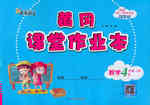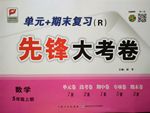题目内容
_______ (她突然想到) money couldn’t make up for all that Bob had suffered in the past five years. (occur)

 黄冈课堂作业本系列答案
黄冈课堂作业本系列答案 单元加期末复习先锋大考卷系列答案
单元加期末复习先锋大考卷系列答案Last Sunday we went to see a AIDS patient in hospital. | 76. |
We bought her some flower and fruit. She was glad to see | 77. |
us. Many people began to avoid see her after she | 78. |
was infected to HIV virus. A doctor told us that the | 79. |
HIV virus mustn’t be infected through daily communication | 80. |
and those suffering from AIDS shouldn’t be looked down upon. | 81. |
We had a talk with the woman and gave her some |
|
CDs as gifts. She was moved to tears and promise to be | 82. |
optimistic and confident in overcoming the disease. We | 83. |
promised to see her again before left. | 84. |
In my opinion, the world will become more beautiful |
|
if all of us love each other and help those in the trouble. | 85. |
The pickle(咸菜)jar as far back as I can remember sat on the floor beside my parents’bed. 21 he got ready for bed,Dad would empty his pockets and drop his 22 into the jar.When the jar was 23 ,Dad would sit at the kitchen table, 24 the coins,then take them to the bank,and put the rolled coins on the 25 ,saying 26 ,“These are for my son’s college education.He’ll 27 work at the mill(磨坊)all his life like me.”
The years passed,and I 28 college and took a job in another town. 29 while visiting my parents.I noticed that the jar was gone.It had served its purpose and had been 30 .My dad was a man of 31 words,and never lectured me on the 32 of determination and faith.The jar had taught me far more than any 33 could have done.
When I married,I told my wife Susan about the important part the 34 had played in my life as a boy.In my mind,it showed,more than anything else,how much my dad 35 me.No matter how 36 things got at home,Dad continued to drop his coins into the jar.
The first Christmas after our daughter Jessica was born,we spent the holiday with my parents.After dinner, Susan carried the baby into my parents’bedroom to feed her.Minutes later, Susan came back into the living room with a/an 37 look.She took my hand and led me into the bedroom.“Look,”she said 38 ,her eyes directing me to a spot on the floor beside the bed.To my 39 ,there,as if it had never been removed,stood the old pickle jar, the bottom already covered with coins.l walked over to the jar, dug down into 40 ,and pulled out a handful of coins.With the strong feelings choking(使…哽咽)me.I dropped the coins into the jar.
21.A.Until | B.Unless | C.Before | D.If |
22.A.coins | B.pickle | C.money | D.purse |
23.A.broken | B.filled | C.removed | D.locked |
24.A.pile | B.clean | C.roll | D.pack |
25.A.table | B.bench | C.floor | D.counter |
26.A.seriously | B.gently | C.proudly | D.anxiously |
27.A.still | B.also | C.always | D.never |
28.A.finished | B.started | C.entered | D.dropped |
29.A.Once | B.Again | C.Besides | D.However |
30.A.removed | B.stolen | C.sold | D.broken |
31.A.no | B.many | C.few | D.big |
32.A.worth | B.values | C.use | D.differences |
33.A.money | B.words | C.books | D.language |
34.A.coins | B.jar | C.determination | D.faith |
35.A.loved | B.treated | C.supported | D.encouraged |
36.A.rough | B.easy | C.smooth | D.wrong |
37.A upset | B.cold | C.worried | D.strange |
38.A.happily | B.angrily | C.loudly | D.softly |
39.A.surprise | B.delight | C.comfort | D.satisfaction |
40.A.the pillow | B.the jar | C.my handbag | D.my pocket |